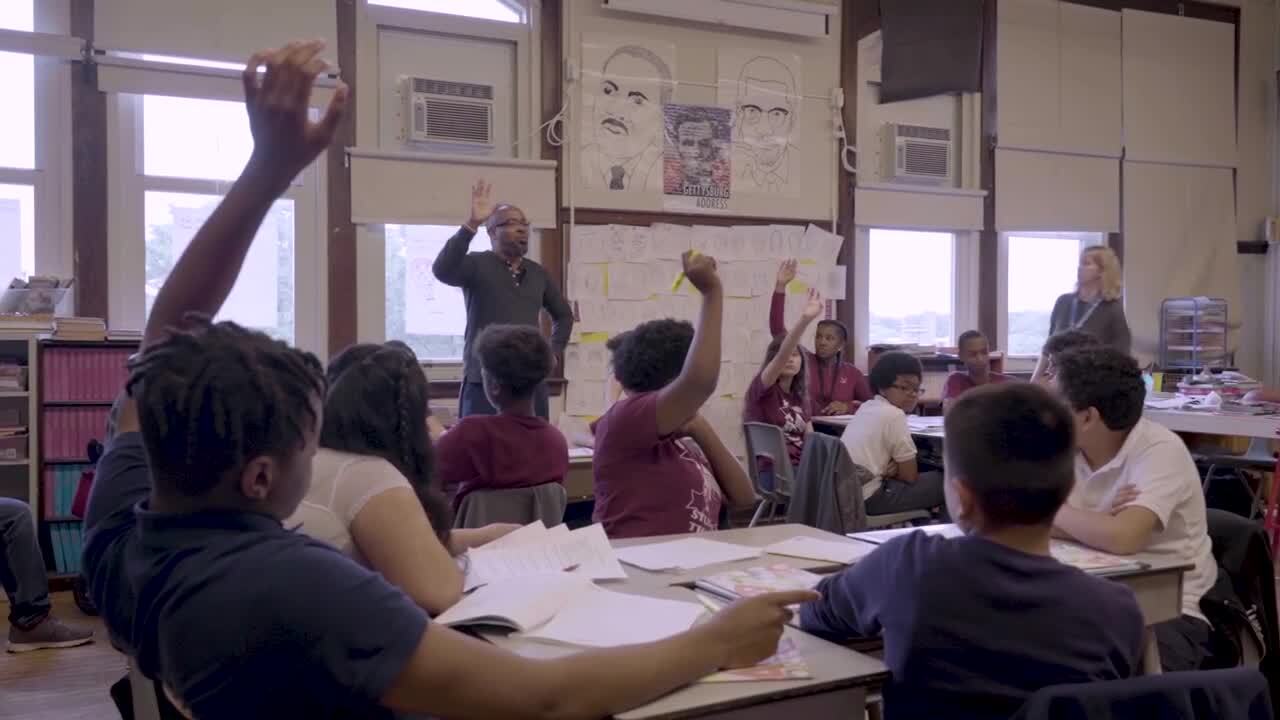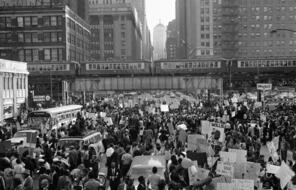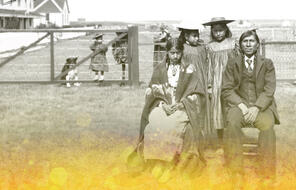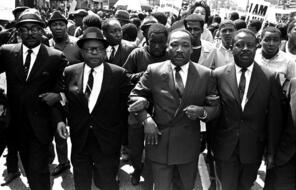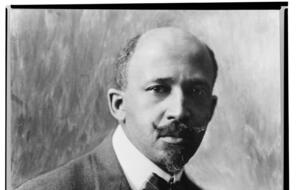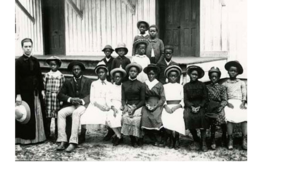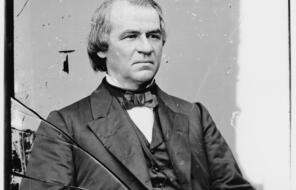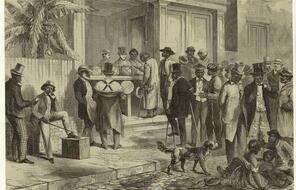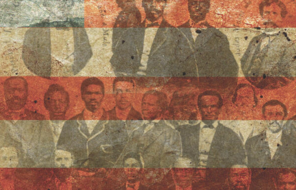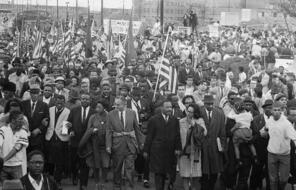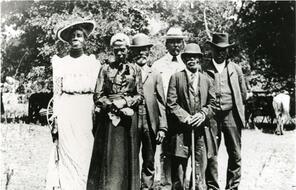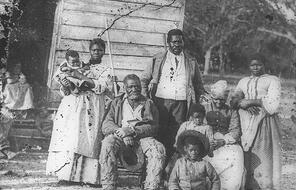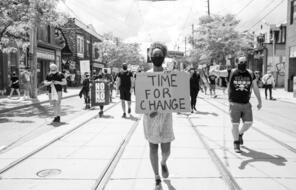Take one minute and think about a first day, ideally, eighth grade since you're about to leave. Think about your first day. O'Reilly? I was nervous because I didn't know that I would be making new friends. You were nervous in not knowing if you were going to be able to make new friends. Ahmed, yeah? It was when I was coming into eighth grade. I didn't even know where the front door was or which class. You didn't know where the front door was or what class and where the class was going to be. Yeah. I started out as an art teacher. So I wasn't really familiar with the social science curriculum. A teacher told me about Facing History. And I went to a workshop actually in Little Rock. It was during the summer. It opened my eyes. I was like, oh my gosh, this is what I should be teaching. This is the way I should be teaching. It was a game changer, definitely was a game changer. It changed the way that I teach. It opened up so many doors as far as history itself, like looking at multiple perspectives of events that happened throughout history. I initially started this year off thinking about identity, diversity, and what role it plays in every student's life, and how a person's identity, how the world sees them, how that may influence their roles in society itself. So how you look at me or how I look at myself, how does that image help me maneuver through our society in a positive way? The lesson that I will be doing really focuses on the Little Rock Nines first day into Central High and the commotion it caused, the backlash, political ramifications that came from this event yes and how society reacted to these nine black children going to an allwhite high school. If you were a parent, remember I asked you guys this, if you were a parent, would you send your child to a school knowing all of this harassment or what may happen? I'm still trying to figure out why. Edward, then Alonzo, then Ila very quickly. As a parent, I wouldn't let them because I know that they're not going to be welcome there because of their skin color. Let me ask you this then. This is what I asked yesterday. Do you think that's right? No. So you know it's wrong. Yeah. You know it's wrong that if you send your child to a school, they will be judged by their skin color. You know it's wrong. Yeah. But you still wouldn't do it? I said something about that. You said something, yeah. I want to do Alonzo first then you. Yes? I also agree with Edward because I would be concerned for my child's safety since I know that something could happen like that. Even though you know what's happening is wrong. I have a question. I'm leading up to something. Yes? Yeah. So just like I said yesterday, I know what's going to happen. But even though it's wrong, the people who are against segregation and who've supported the idea, they're not the one that's going to feel the pain of something like the success of it. You're the one that's going to be feeling it. So the people who are trying to support integration-- Or are against it. --or going against it, going against segregation, they're not sending their child. You're sending your child. Yeah. So if something happens to your child-- You feel the pain. You feel it. Not the other people. Not the other people. I love this lesson for several different reasons. The thing that excites me the most is touching on things that have happened in the past that I feel like students either have experienced now or will experience later on in their lives. We started off at the beginning of the year talking about the Civil War and how our nation was divided due to so many different issues. The culture and the climate that we're in right now where race and gender, nationality, or citizenship, these issues of identity are so huge. We go back and we look at things like what happened in Little Rock as far as segregation and judging people and not wanting to be next to someone because we're afraid of what might happen. And the fact that my classroom is extremely diverse, showing them that what you may be experiencing now is not something that is 60, 70 years old. This is something that's very recent.
